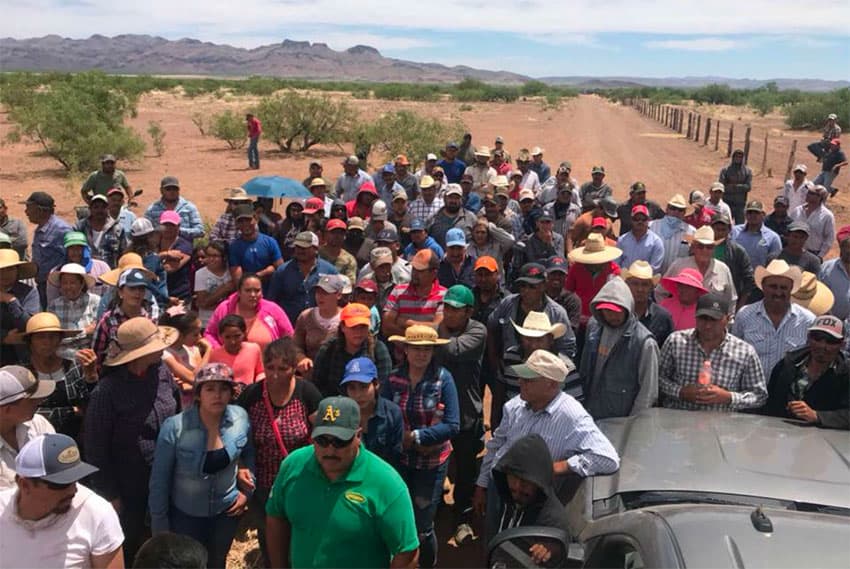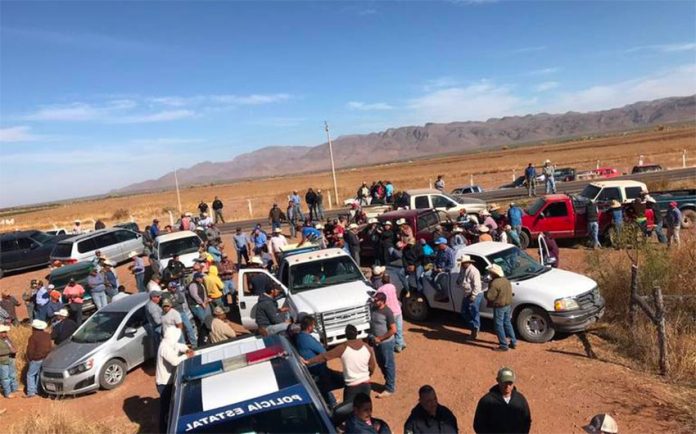A criminal organization has been mentioned as a possible suspect in Monday’s ambush of a Mormon family in which nine women and children were killed.
But the LeBarón family of Chihuahua has few friends among members of a farmers’ group called El Barzón.
The family’s ranch was attacked last year by neighboring farmers who claimed that illegal water wells had been drilled on the property.
More than 100 members of El Barzón broke into the LeBarón family’s walnut farm in the municipality of San Buenaventura in April 2018.
Video footage shows a convoy of pickup trucks entering the La Mojina ranch, where barzonistas, as the members of the farmers’ group are known, set a house and warehouses on fire, destroyed 11 water wells and ran over small walnut trees.

Another video shows the pickup trucks traveling along a dirt road on the ranch before confronting members of the LeBarón family.
According to Julian LeBarón – who provides a voiceover to the footage broadcast by television station Televisa – the barzonistas broke down fences to enter the ranch.
LeBarón said that members of his family tried to stop the farmers and talk to them but they responded by shouting “racist” and “xenophobic” remarks at them.
He said the barzonistas subsequently began throwing stones, after which his brother fired warning shots into the air and ground.
The LeBarón family, part of a breakaway Mormon community that has lived in northern Mexico for decades, has allegedly drilled more than 2,000 water wells on its ranches without the permission of the National Water Commission (Conagua) or by obtaining permits through the payment of bribes.
Conagua said that 740 wells were closed in Chihuahua in 2016 and 2017 because they had been drilled illegally.
In 2018, Conagua data showed that 14 of 61 aquifers in Chihuahua were overexploited. Several of them are located in municipalities where the LeBarón family owns ranches.
Before the ranch attack, El Barzón claimed that the LeBarón family planned to drill 50 new wells on the property for the irrigation of walnut trees, which require significant amounts of water.
The farmers’ group has long claimed that the LeBarón family’s illegal use of water resources will leave communities without any. The family denies any wrongdoing.
After last year’s attack at San Buenaventura, the then leader of El Barzón, Eraclio Rodríguez (now a federal lawmaker with the ruling Morena party), said that he and other members of the farmers’ group received death threats from the LeBarón family.
“They told us that our heads now had a price on them. We asked the authorities to intervene as soon as possible,” he said.
There has been some speculation that the attack on Monday that left three women and six children dead could be linked to the long-running water dispute.
However, federal authorities have said that La Línea, a gang with links to the Juárez Cartel, may have mistaken the vehicles in which the women and children were traveling for those of a splinter cell of the Sinaloa Cartel known as Los Salazar. Family members reject the hypothesis.
President López Obrador said on Friday that a special team has been formed to investigate the case, which triggered an offer from United States President Donald Trump to help Mexico “wage war” against the cartels.
“. . . They’re analyzing all the hypotheses, all of them, nothing is ruled out, they’re gathering information,” the president said.
“. . . There is nothing that prevents a thorough investigation . . . There is no limit because of an agreement with any criminal or political group or because of vested interests . . .” López Obrador declared.
Source: La Jornada (sp), Milenio (sp)
